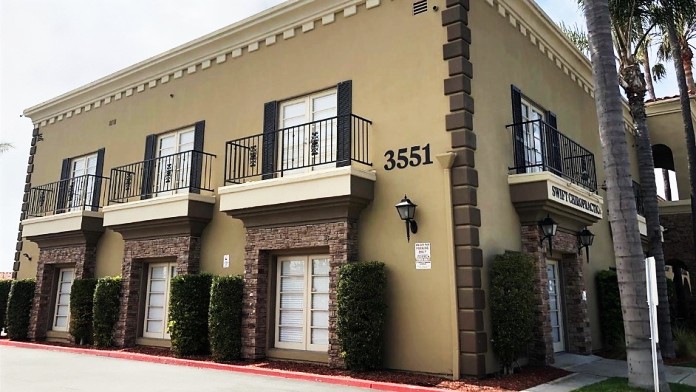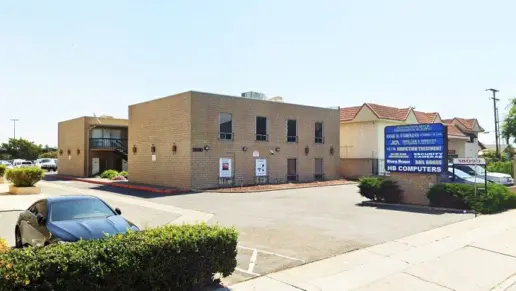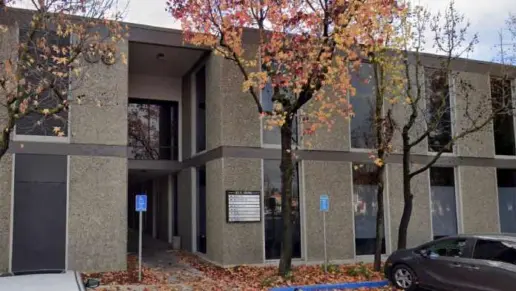About Pacific Palms Recovery
Located in San Clemente, California, Pacific Palms Recovery is a dual diagnosis and alcohol and drug rehab center that provides addiction treatment to men and women seeking recovery through a wide continuum of care. They offer detox, intensive outpatient, and traditional outpatient treatment.
The detoxification program supports individuals in safely and effectively removing addictive substances from their bodies so they can benefit from ongoing addiction treatment programming. Clients are monitored by professionals to ensure safety and to help provide as much comfort as possible.
The intensive outpatient program meets three times a week, for three hours at a time on average. Individual therapy, group therapy, family therapy, couples counseling, relapse prevention classes, anger management classes, stress management classes, and referral services are provided.
The outpatient program offers mental health counseling, alumni groups, and aftercare services to individuals who have completed their treatment time, but who want ongoing maintenance to ensure stability and mental well-being.
Pacific Palms Recovery accepts most insurance plans, including Aetna, Anthem, Beacon, Ambetter, Humana, HCSC, Tricare, Cigna, Kaiser, Magellan, and more. Out-of-network benefits may vary, so it’s important to verify coverage before starting treatment.
Gallery

Location
Accepted Insurance
Other Forms of Payment
Self-pay involves paying for treatment out of your own pocket. You can use savings or credit, get a personal loan, or receive help from family and friends to fund your treatment. If you don't have insurance or your insurance plan doesn't cover a specific program, self-pay can help ensure you still get the care you need.
Private insurance refers to any kind of healthcare coverage that isn't from the state or federal government. This includes individual and family plans offered by an employer or purchased from the Insurance Marketplace. Every plan will have different requirements and out of pocket costs so be sure to get the full details before you start treatment.
Addiction Treatments
Levels of Care
Treatments
The goal of treatment for alcoholism is abstinence. Those with poor social support, poor motivation, or psychiatric disorders tend to relapse within a few years of treatment. For these people, success is measured by longer periods of abstinence, reduced use of alcohol, better health, and improved social functioning. Recovery and Maintenance are usually based on 12 step programs and AA meetings.
Drug rehab in California teaches participants constructive ways to stay clean and sober. Treatment revolves around helping individuals stop using the substance they are addicted to and learn healthy habits to avoid relapse.
Many of those suffering from addiction also suffer from mental or emotional illnesses like schizophrenia, bipolar disorder, depression, or anxiety disorders. Rehab and other substance abuse facilities treating those with a dual diagnosis or co-occurring disorder administer psychiatric treatment to address the person's mental health issue in addition to drug and alcohol rehabilitation.
A combined mental health and substance abuse rehab has the staff and resources available to handle individuals with both mental health and substance abuse issues. It can be challenging to determine where a specific symptom stems from (a mental health issue or an issue related to substance abuse), so mental health and substance abuse professionals are helpful in detangling symptoms and keeping treatment on track.
Opioid rehabs specialize in supporting those recovering from opioid addiction. They treat those suffering from addiction to illegal opioids like heroin, as well as prescription drugs like oxycodone. These centers typically combine both physical as well as mental and emotional support to help stop addiction. Physical support often includes medical detox and subsequent medical support (including medication), and mental support includes in-depth therapy to address the underlying causes of addiction.
Programs


Clinical Services
Research indicates that family involvement in treatment is crucial for effective long-term recovery and sobriety. In order to provide support, information and resources, Pacific Palms Recovery has developed a Family Education Program to meet the needs of those family members who have been impacted by a drug addiction or alcoholism. The goal of the Family Education Program is to introduce participants to the principles of recovery along with providing necessary social and emotional support. The educational component of the Family modules helps both clients and family members in understanding the tangled web of addiction and its impact on the family as a whole. Family members of clients who are participating in Outpatient Treatment services are encouraged to enroll in the Family Education Program.
Group therapy is any therapeutic work that happens in a group (not one-on-one). There are a number of different group therapy modalities, including support groups, experiential therapy, psycho-education, and more. Group therapy involves treatment as well as processing interaction between group members.
In individual therapy, a patient meets one-on-one with a trained psychologist or counselor. Therapy is a pivotal part of effective substance abuse treatment, as it often covers root causes of addiction, including challenges faced by the patient in their social, family, and work/school life.
Life skills trainings involve all the skills a person must have in order to function successfully in the world. These include time management, career guidance, money management, and effective communication. Truly successful addiction recovery is based on the ability to not only live substance-free, but to thrive. Life skills teaches the practical necessities of functioning in society, which sets clients up for success in life, and therefore sobriety.
Trauma therapy addresses traumatic incidents from a client's past that are likely affecting their present-day experience. Trauma is often one of the primary triggers and potential causes of addiction, and can stem from child sexual abuse, domestic violence, having a parent with a mental illness, losing one or both parents at a young age, teenage or adult sexual assault, or any number of other factors. The purpose of trauma therapy is to allow a patient to process trauma and move through and past it, with the help of trained and compassionate mental health professionals.
Amenities
-
Private Setting
Accreditations

State Licenses are permits issued by government agencies that allow rehab organizations to conduct business legally within a certain geographical area. Typically, the kind of program a rehab facility offers, along with its physical location, determines which licenses are required to operate legally.
State License: California
Contact Information
3551 Camino Mira Costa
Suite T
San Clemente, CA 92672









